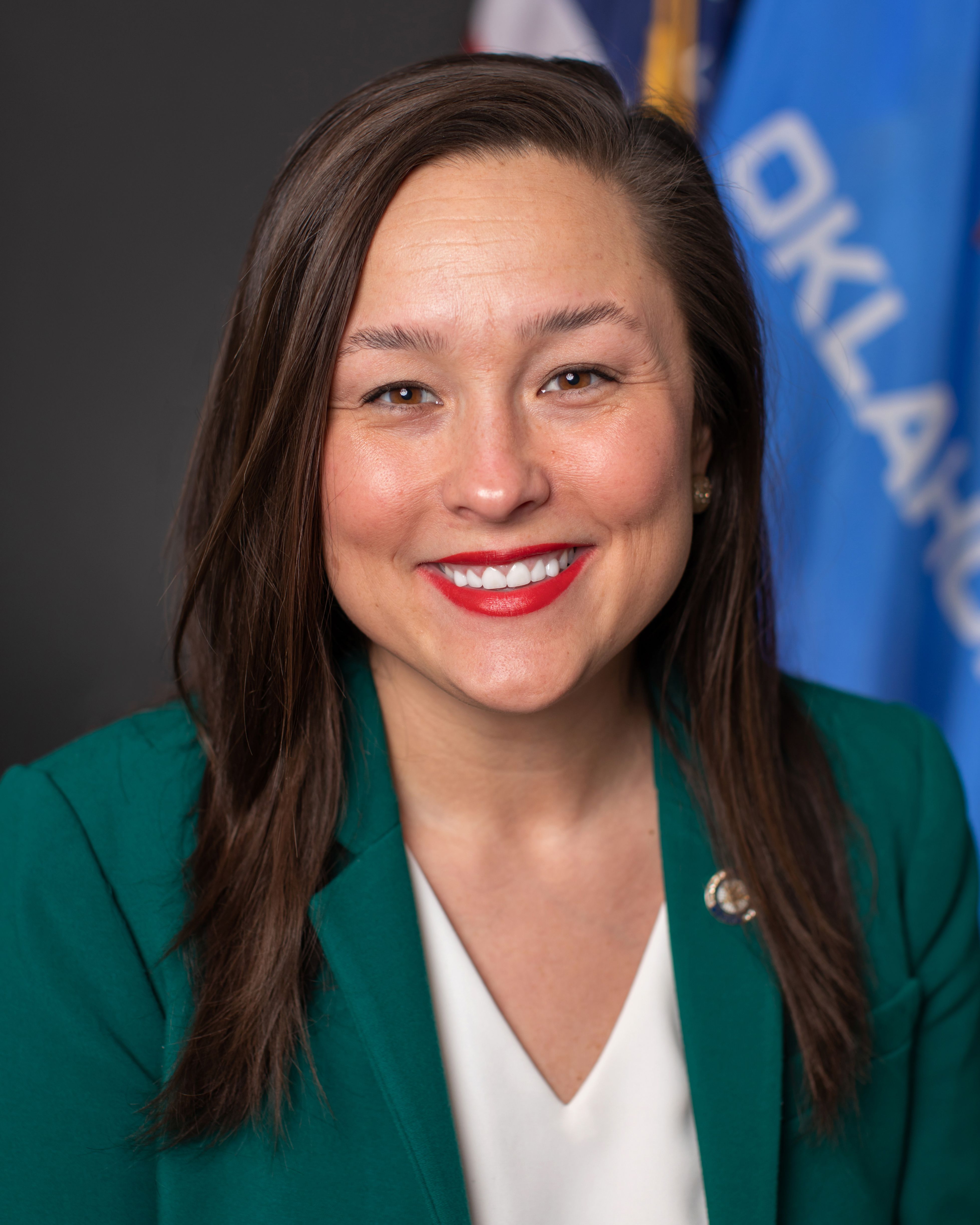Originally from Lawton, Cyndi Munson developed her passion for public service at an early age. Her father’s military service taught her the importance of giving back to the community around her.
A first-generation college student, Cyndi graduated from the University of Central Oklahoma with a Bachelor of Arts in Political Science and was awarded the Presidential Gold Medal for Leadership and Public Service. She used a semester of her undergraduate career to study non-profit and voluntary services at Georgetown University and then attended the University of Nebraska – Lincoln, where she earned a Master of Science in Leadership Education.
Cyndi has spent over a decade working in the non-profit community. Passionate about education and criminal justice reform, she most recently served OK Messages Project, a non-profit working to improve children’s lives through shared reading with their incarcerated parent, as the Development and Community Engagement Coordinator. Prior to joining OK Messages Project, she served in a variety of professional roles in her five years with Girl Scouts of Western Oklahoma. Her insight helped to provide leadership programs for thousands of girls in low-income schools, juvenile detention centers, and public housing.
Cyndi is a graduate of Youth Leadership Oklahoma Class III, Leadership Oklahoma City’s LOYAL Class VIII, and Leadership Oklahoma Class 31. She is a member of Rotary Club of Oklahoma City, Club 29 – one of the largest clubs in Rotary International. In 2019, she was selected to participate in the Council of State Governments Henry Toll Fellowship Program, one of the nation’s premiere leadership development programs for state government officials. Cyndi was recently appointed to the Democratic Legislative Campaign Committee – the official party committee dedicated to electing Democrats to statehouses – Board of Directors, where she will serve a three-year term.
Elected in September of 2015, Cyndi became the first Asian-American woman elected to the Oklahoma Legislature. In May of 2021, she was elected by her Democratic colleagues as the House Democratic Leader for the 59th Legislature. In May of 2023, she was re-elected as House Democratic Leader for the 60th Legislature. She primarily focuses on issues pertaining to children, women, working families, public education, criminal and juvenile justice reform, election and voter reform, and Alzheimer’s.
In her free time, she enjoys running, reading, rowing, hiking, painting, and mentoring young women across the state. And most importantly, she is obsessed with her precious and perfect nephew.

